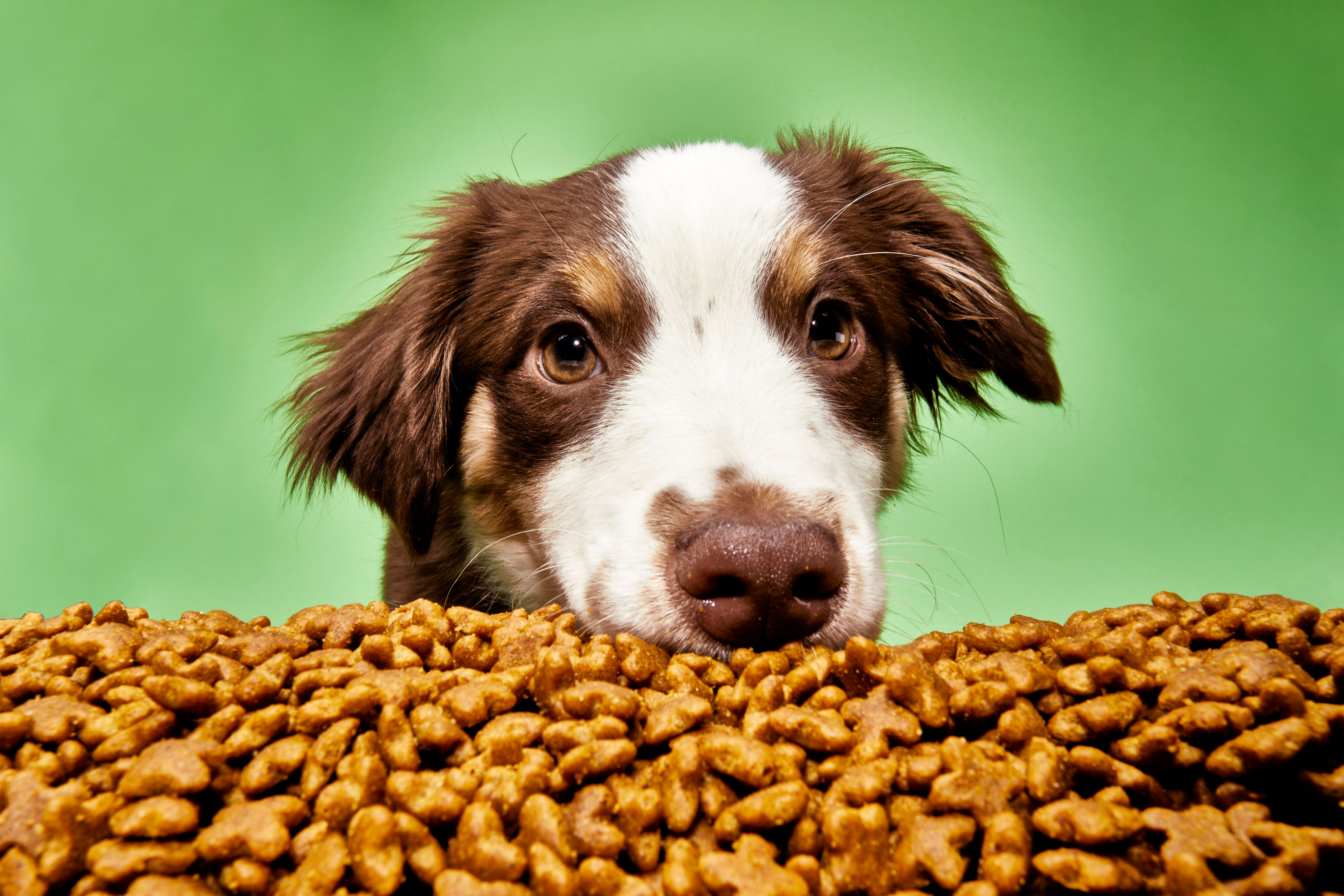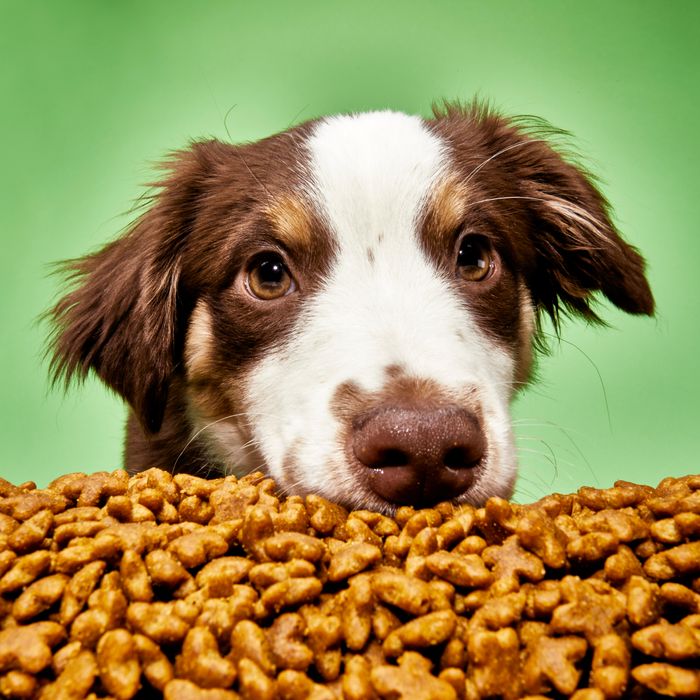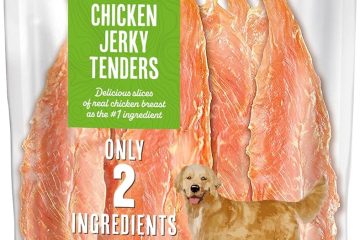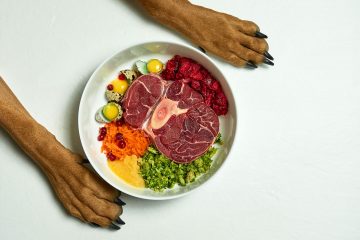A vet may advise removing potato and legumes from a dog’s food due to potential links to heart disease and low taurine levels. However, plain cooked potatoes in moderation are safe for dogs to eat.
Potatoes are not related to legumes; they are a tuberous plant from the Solanaceae family. There is ongoing research to determine the exact relationship between legumes, potatoes, and canine heart disease. To ensure the safety of your dog’s diet, it is best to consult with a veterinarian and consider diet options that meet their specific needs.

Credit: www.amazon.com
Understanding The Concerns
In response to the concerns raised by the vet, it is important to understand that dogs can safely consume potatoes but in plain cooked form and in moderation. However, legumes such as lentils, beans, and peas commonly used in grain-free dog foods are deemed safe for healthy dogs according to recent research.
Therefore, it may be advisable to avoid dog food containing potatoes and any legumes as suggested by the vet.
Potential Link Between Legumes And Heart Disease
According to reports released by the FDA, there is concern about a potential link between legumes and heart disease in dogs. High levels of peas, potatoes, and lentils in dog food may lead to low taurine levels and contribute to heart disease.
Safety Of Potatoes In Dog Food
Despite the concerns about legumes, potatoes are considered safe for dogs to consume as long as they are cooked and offered in moderation. Plain roasted potatoes without any spices or butter can be a delicious and safe treat for your furry friend. However, it’s essential to avoid feeding your dog raw or boiled potatoes as they contain solanine, which is harmful to dogs.
It’s crucial to understand the difference between legumes and potatoes. Potatoes are not related to legumes; they belong to the Solanaceae family and are enlarged tips of the underground stems. On the other hand, legumes are the fruit or pod of the botanical family Leguminosae.
While potatoes and legumes have been linked to certain health concerns in dogs, it’s important not to jump to conclusions about their safety without proper evidence and consultation with a veterinarian.
Therefore, if your vet recommends removing dog food containing potatoes and legumes from your pet’s diet based on the FDA report, it’s essential to follow their guidance. They have your dog’s best interests at heart and are concerned about their overall health and well-being.
| Resource | Website |
|---|---|
| ‘Peas of Mind’: Pulse Ingredients in Dog Food Not Linked to Heart Problems | University of Guelph |
| Can Dogs Eat Potatoes? Read Before You Feed | Purina |
| Diet and Dilated Cardiomyopathy (DCM) in Dogs | Petcurean |
| Royal Canin Venison & Potato | Dog Food Advisor |
| Colitis | Dog Food Advisor |
- People are getting very confused about Legumes & Potatoes
- HELP! Need advice on legume-free food – Dog Food
Debunking The Confusion
Debunking the Confusion: A vet recommends removing potato and legumes from dog food, but it’s important to understand the facts. Potatoes can be safe for dogs in moderation, while legumes have not been linked to heart problems in healthy dogs.
With proper knowledge, you can make informed choices about your dog’s diet.
Potatoes Vs Legumes: Botanical Differences
If you’ve been following the recent discussions about legumes and potatoes in dog food, you might be feeling a bit confused. The FDA report linking these ingredients to potential health issues in dogs has understandably raised concerns among pet owners. However, it’s important to understand the facts and debunk some of the confusion surrounding these two ingredients.
Potatoes: More Than Just A Spud
Contrary to popular belief, potatoes are not legumes. In botanical terms, legumes are the fruit or pod of the Leguminosae family. Potatoes, on the other hand, belong to the Solanaceae family and are technically tubers. They are the enlarged underground stem of the potato plant. Yes, they may share the word “tuber” with other root vegetables like sweet potatoes and cassava, but that’s where the botanical similarity ends.
Legumes: Not As Bad As They Seem
Legumes have taken a hit in recent years due to their alleged connection to heart disease in dogs. While it’s true that legumes, along with peas and lentils, contain substances that can potentially interfere with taurine levels in dogs, it’s important to note that the research is inconclusive. A new study from the University of Guelph suggests that pulse ingredients in dog food, including legumes, are safe for healthy dogs.
Understanding Your Dog’s Unique Needs
Every dog is different, and their dietary needs may vary. Some dogs may be more sensitive to certain ingredients, while others may tolerate them just fine. It’s always best to consult with your veterinarian to determine the most suitable diet for your furry friend. They can provide personalized guidance based on your dog’s specific health requirements.
Exploring Alternatives
If you’re still concerned about feeding your dog food containing potatoes or legumes, there are plenty of alternative options available. Look for dog foods that use alternative carbohydrates like sweet potatoes, rice, or oats. Additionally, consider rotating proteins to minimize the risk of developing dietary sensitivities. In conclusion, while the FDA report has prompted questions and concerns about potatoes and legumes in dog food, it’s important to separate fact from fiction. Potatoes are not legumes, and more research is needed to fully understand the impact of legumes on canine health. Consult with your vet, explore alternative options, and most importantly, listen to your dog’s unique needs. Your furry friend’s health and happiness should always be the top priority.
Expert Opinions
According to new research from the University of Guelph, pulse ingredients such as lentils, beans, and field peas commonly found in grain-free dog foods are safe for healthy dogs. However, if your vet has recommended removing potatoes and legumes from your dog’s diet, it may be due to concerns about low taurine levels and their potential contribution to heart disease in some cases.
It’s always best to follow your veterinarian’s advice for your dog’s specific needs.
FDA Report On Legumes And Potatoes
The FDA report on the potential link between legumes and potatoes in dog food and heart disease has caught the attention of many pet owners and veterinarians. According to the report, foods containing high levels of peas, potatoes, and lentils may contribute to low taurine levels in dogs and ultimately lead to heart disease. While more research is needed to fully understand the connection, the FDA advises pet owners to be cautious when feeding their dogs food containing these ingredients.
Veterinarians’ Recommendations
Veterinarians across the country have been following the FDA report closely and offering their recommendations to concerned pet owners. Many experts suggest avoiding dog food containing potatoes and any legumes, such as peas and lentils, as a precautionary measure. While the research is still inconclusive, vets believe that it is better to err on the side of caution and choose alternative food options for our furry friends. Some vet-approved suggestions for legume and potato-free dog food include:
- Grain-based dog food: Opt for dog food that contains grains like rice, barley, or oats instead of legumes and potatoes. These grains provide a good source of carbohydrates for your dog’s energy needs.
- Protein-rich options: Look for dog food that prioritizes high-quality proteins, such as chicken, beef, or fish. These protein sources can support your dog’s muscle development and overall health.
- Consult with your vet: Each dog is unique, and it’s crucial to consult with your veterinarian before making any drastic changes to your dog’s diet. They can offer personalized recommendations based on your dog’s specific needs and health conditions.
Remember, keeping your dog’s diet well-balanced and free from potentially risky ingredients like legumes and potatoes is essential for their long-term health. While the debate continues on the exact connection between these ingredients and heart disease, it’s always best to prioritize your furry friend’s well-being. With expert opinions and recommendations, you can make an informed decision regarding your dog’s diet. By staying up-to-date on the latest research and working closely with your veterinarian, you can provide the best nutrition for your beloved pet.

Credit: nymag.com
Alternatives And Recommendations
Looking for alternatives and recommendations for dog food without potatoes and legumes? Check out the University of Guelph’s research, which states that lentils, beans, and field peas are safe for healthy dogs. Additionally, consider feeding your dog cooked potatoes in moderation, avoiding raw or boiled potatoes due to safety concerns.
Exploring Legume-free Diet Options
If you’re looking for alternatives to dog food containing potatoes and legumes, there are several legume-free options available in the market. These options can provide a balanced and nutritious diet for your furry friend while avoiding potential complications that may arise from consuming legumes.
One popular alternative is a grain-free formula that replaces legumes with other nutritious ingredients such as sweet potatoes, pumpkin, or tapioca. These alternatives can serve as a source of carbohydrates and dietary fiber for your pooch while avoiding the potential risks associated with legume consumption.
Another option is to consider a rotational diet that includes a variety of proteins such as fish, chicken, or venison, paired with vegetables like carrots, peas, or spinach. This approach ensures that your dog receives a diverse range of nutrients while minimizing the reliance on legumes.
Understanding The Role Of Balanced Nutrition
When it comes to choosing an alternative dog food, it’s crucial to prioritize balanced nutrition. A well-balanced diet should consist of a proper ratio of proteins, fats, carbohydrates, vitamins, and minerals to support your dog’s overall health and well-being.
To ensure balanced nutrition, it’s advisable to consult with your veterinarian. They can guide you in selecting the right brand and formula that meets your dog’s specific dietary needs. Additionally, consider opting for formulas that are labeled as complete and balanced according to the guidelines set by reputable organizations such as the Association of American Feed Control Officials (AAFCO).
Remember, each dog is unique, and their nutritional requirements may vary based on factors such as age, breed, weight, and activity level. Regular visits to the veterinarian can help you monitor your pet’s health and make any necessary adjustments to their diet.

Credit: nymag.com
Frequently Asked Questions On Vet Wants Dog Off Food Containing Potato And Any Legumes 2
Should I Avoid Legumes In Dog Food?
Legumes such as lentils, beans, and field peas in dog food are safe for healthy dogs. New research from the University of Guelph confirms that these pulse ingredients do not cause heart problems. However, it’s important to feed potatoes in moderation and only when cooked plain.
Avoid raw or boiled potatoes as they contain solanine, which is harmful to dogs.
Are Potatoes In Dog Food Safe?
Potatoes in dog food are safe as long as they are cooked and given in moderation. Raw or boiled potatoes should be avoided as they contain solanine, which is harmful to dogs. Offer roasted potatoes without spices or butter for a delicious treat.
Is A Potato Considered A Legume?
No, a potato is not considered a legume. Legumes are the fruit or pod of the botanical family Leguminosae. Potatoes are tuberous roots from the Solanaceae family.
Conclusion
In light of recent research and FDA reports, our veterinarian strongly advises removing dog food containing potatoes and legumes from our furry companions’ diet. It is suspected that these ingredients could potentially contribute to heart disease and low taurine levels in dogs.
While potatoes cooked plain and offered in moderation are generally safe, it’s best to err on the side of caution and choose alternative food options for our pet’s well-being. Always consult with our vet for the best dietary recommendations.




